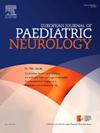德拉瓦综合征护理者的负担和治疗需求--英国全国横断面问卷调查研究
IF 2.3
3区 医学
Q3 CLINICAL NEUROLOGY
引用次数: 0
摘要
背景和目的:德拉沃综合征是一种严重的发育性癫痫性脑病,患者及其家庭需要大量的护理工作。我们的目标是描述从儿童到成年期照顾德拉维特综合征患者的家庭的照顾者负担和治疗需求,研究与年龄相关的共病差异,并找出目前在医疗和社会护理方面存在的差距。方法英国德拉维特综合征患者权益组织(DSUK)通过电子邮件向照顾确诊为德拉维特综合征患者的登记家庭进行了横断面全国调查。为了描述样本的特征,收集了有关人口统计学、诊断过程、并发症、治疗、医疗保健利用、社会关怀和资金以及对家庭生活的影响等方面的定量数据。采用基础理论对定性数据进行了分析,以建立影响和服务需求模型。90%的成年德雷维综合征患者等待了12个月才得到诊断,相比之下,25%的幼儿家庭等待了12个月才得到诊断(p< 0.001)。96%的患者称智力残疾为并发症,在年长的德雷维综合征患者中更为常见(p <0.001),此外还有自闭症/类自闭症症状(χ2 = 15.3,df = 3,p = 0.001)和脊柱侧弯(χ2 = 28.4,df = 3,p <0.001)。睡眠问题对照顾者心理健康的影响更大(χ2 = 13.2,df = 2,p = 0.001)。77%的家庭希望就癫痫意外猝死(SUDEP)进行更多讨论,50%的家庭将儿科向成人过渡的经历评为 "差"。90%的护理人员无法继续正常工作,这对他们的生活质量(p = 0.024)和精神健康(p = 0.007)产生了负面影响。随着年龄的增长以及健康、认知和行为方面合并症的增加,家人的经历也会随之改变。改善与医疗保健专业人员的沟通、社会心理干预和更好地获得社会关怀将使家庭受益。本文章由计算机程序翻译,如有差异,请以英文原文为准。
Caregiver burden and therapeutic needs in dravet syndrome - A national UK cross-sectional questionnaire study
Background and objectives
Dravet Syndrome is a severe developmental and epileptic encephalopathy with significant care needs for affected individuals and families. Our objective was to characterise the caregiver burden and therapeutic needs of families caring for an individual with Dravet Syndrome from child to adulthood, to examine age related differences in co-morbidities, and identify current gaps in health and social care.
Methods
Cross-sectional national survey conducted by the patient advocacy group Dravet Syndrome UK (DSUK) emailed to registered families caring for an individual with a confirmed diagnosis of Dravet syndrome. To characterise the sample, quantitative data on demographics, diagnostic journey, co-morbidities, therapies, healthcare utilisation, social care and funding, and impact on family life were collected. Qualitative data were analysed using grounded theory to develop a model of impact and service need.
Results
165 out of 381 families (43 %) responded. 90 % of adult Dravet syndrome patients waited >12 months to receive a diagnosis, compared to 25 % families with a young child (p < 0.001). 96 % reported intellectual disability as co-morbidity, more frequently observed in older Dravet syndrome individuals (p < 0.001), alongside autism/autistic-like symptoms (χ2 = 15.3, df = 3 p = 0.001) and scoliosis (χ2 = 28.4, df = 3, p < 0.001). Sleep problems are associated with greater impact on caregiver's mental well-being (χ2 = 13.2, df = 2, p < 0.001). 77 % of families wished more discussions about sudden unexpected death in epilepsy (SUDEP) and 50 % rated the paediatric to adult transition experience as ‘poor’. 90 % of caregivers were unable to continue working as normal with negative impact on their quality of life (p = 0.024) and mental well-being (p = 0.007).
Discussion
Families are profoundly impacted by Dravet syndrome. Their experience changes over time as people with Dravet syndrome become older and present with increasing levels of health, cognitive and behavioural comorbidities. Families will benefit from improved communication with health care professionals, psychosocial interventions and better access to social care.
求助全文
通过发布文献求助,成功后即可免费获取论文全文。
去求助
来源期刊
CiteScore
6.30
自引率
3.20%
发文量
115
审稿时长
81 days
期刊介绍:
The European Journal of Paediatric Neurology is the Official Journal of the European Paediatric Neurology Society, successor to the long-established European Federation of Child Neurology Societies.
Under the guidance of a prestigious International editorial board, this multi-disciplinary journal publishes exciting clinical and experimental research in this rapidly expanding field. High quality papers written by leading experts encompass all the major diseases including epilepsy, movement disorders, neuromuscular disorders, neurodegenerative disorders and intellectual disability.
Other exciting highlights include articles on brain imaging and neonatal neurology, and the publication of regularly updated tables relating to the main groups of disorders.

 求助内容:
求助内容: 应助结果提醒方式:
应助结果提醒方式:


